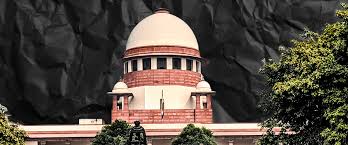CASE COMMENTARY ON BIJOE EMMANUEL & ORS V. STATE OF KERALA & ORS
Author – JHALAK SINGH & RIYA BISWAS, STUDENTS AT JAGRAN LAKECITY UNIVERSITY
Best Citation – JHALAK SINGH & RIYA BISWAS, CASE COMMENTARY ON BIJOE EMMANUEL & ORS V. STATE OF KERALA & ORS, ILE Journal of Equity and Justice, 1 (1) of 2023, Pg. 146-149, ISBN – 978-81-961791-3-7
ABSTRACT
The National Anthem, which symbolises our loyalty to our nation. The National Anthem depicts our culture, beliefs, causes of sorrow, and victories that we have all shared. All of the citizens of the nation remain together via singing. It is played everywhere; hearing it makes you feel at home and brings us pride. It exudes a sense of pride and intense patriotism for the nation. At gatherings for theatre, school and college cultural events, and the beginning of programmes and activities, the national anthem is performed. In order to encourage pride, respect, nationalism, and a sense of our country’s unity and identity, we as citizens must stand while we play it and occasions. It encourages pride, respect, nationalism, and a sense of our country’s unity and identity when we perform it as citizens, thus we must stand by doing so. Anyone who interrupts, prevents, or causes a disturbance during the singing of the national anthem in India is subject to punishment under Section 3 of The Prevention of Insults to National Honour Act, 1960, which carries a maximum sentence of three years in jail or a fine, or both. When the government failed to uphold the 25(1) basic principle and the right to free speech, the court utilised its jurisdiction under Article 19(1)(a) of the Indian Constitution to preserve that right. Articles 19(1)(a) and 25(1) of the Constitution of the United States are used in this paper to analyse the supreme court order.The Constitution of India; 1949 in the case of BIJOE EMMANUEL v. STATE OF KERALA.
Keywords: National Anthem; Supreme Court; Jehovah’s Witness; Expulsion; Religious belief.
